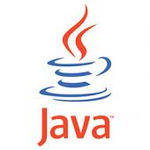Working Through The Possible vs. The Pretty
Monday, December 10th, 2012
I know this about myself - I'm not afraid to get dirty. I don't mind it, and as long as I'm in for it a little, I'm in all the way. Mud up to my elbows - no problem. So it's come to no shock to me today that Archibald, one of my co-workers, who's a little fussy, and loves clojure is a bit unsettled by some developments in the project today.
Basically, we need to have something that conditionally formats objects into JSON from clojure so that the data flowing out of the system we're building is easily read by the downstream system without modification. That's the key.
Now it's certainly possible that we can modify the downstream system to make it take the data we'll be sending, but previously in the day Archie didn't want to do that either - for obvious coupling reasons (another big clojure design point) - so we discarded that idea, and went full steam ahead. But when we got to the "dirty" part of the code - where we were going to have to have a very customized output formatter to send only the fields we need to send - based on the data we're going to send.
For example, we can have two different location data points. One that's based on a zip code:
{ "name": "Downtown", "zip": "47664" }
and one that's based on a division:
{ "name": "Downtown", "division": "indianapolis" }
The idea is that a zip code is very targeted - geographically, but there are certain demands that are much larger in scope, and for those, we want to make it clear that the entire area is "fair game". The problem is that the table this data is coming from has both columns:
CREATE TABLE locations ( id uuid PRIMARY KEY, demand_id uuid, latitude DOUBLE PRECISION, longitude DOUBLE PRECISION, name VARCHAR, zip VARCHAR, division VARCHAR )
so if we sent data directly from the table, we get:
{ "latitude": null, "longitude": null, "name": "Downtown", "zip": null, "division": "indianapolis" }
and if the reader of this data looks at the existence of the keys for what to do, it's going to be confused. We need to have something that intelligently outputs the data so that null fields are only sent when they are required null fields.
This is getting "messy", and I could see it on his face. It was something he was finding quite distasteful. It wasn't clean, like math. And I could tell it was grating on him.
For me, it's just part of the job. Very reasonable, and something we should be doing for our clients. We need to send them what they need, everything that they need, and nothing they don't need. I'd like that if I was a client of the service, so why shouldn't I want to do that for the clients of my service? Seems only reasonable.
I can tell this is going to be one of those projects that I'm going to wish was over before it ever really got started. Archie is a nice guy. He's funny and personable, and smart. But all too often he decides what he is willing to do, and many times that's not what really needs to be done because it's "messy". Please just do the job, or move on… there really is very little room in life for people that only do what they want.




